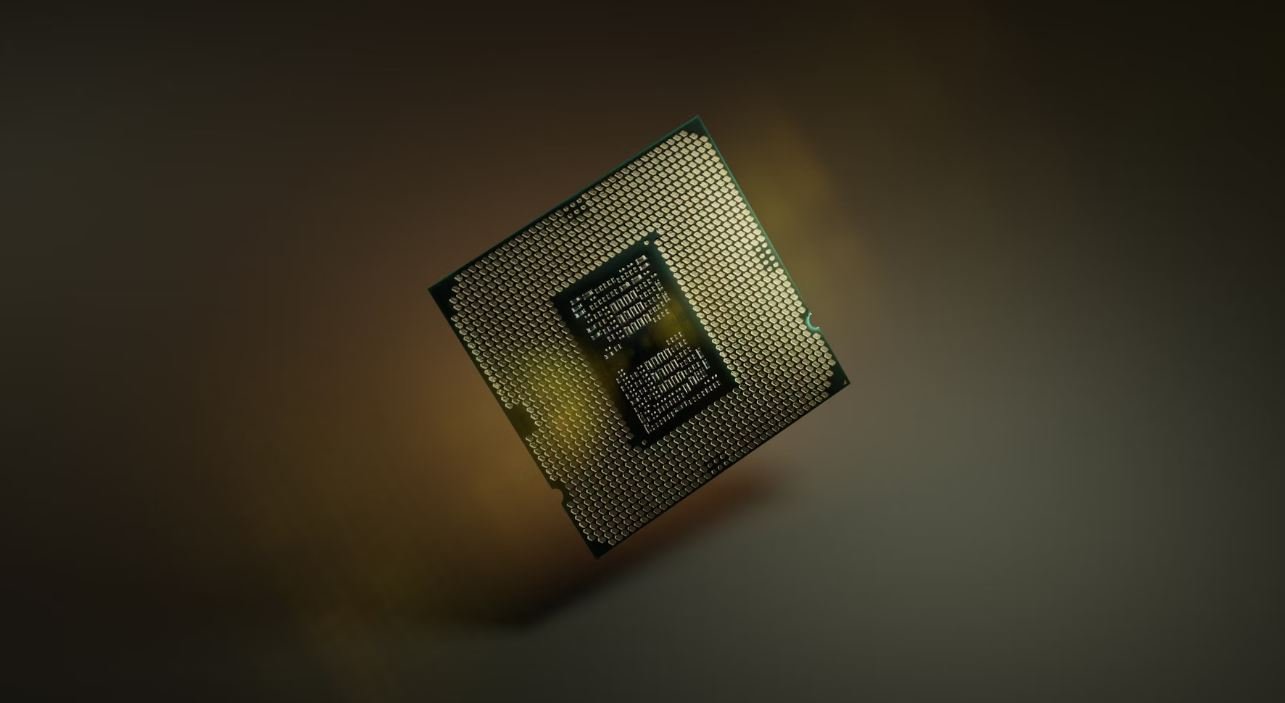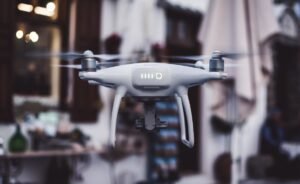What Has AI Done for Us?
Artificial Intelligence (AI) is transforming the world as we know it, revolutionizing industries and shaping our everyday lives in ways we never thought possible. From self-driving cars to personalized recommendations, AI’s impact is undeniable. In this article, we will explore the various applications of AI and the benefits it has brought to our society.
Key Takeaways
- AI has revolutionized various sectors such as healthcare, transportation, and entertainment.
- It has improved efficiency, accuracy, and decision-making processes.
- AI has the potential to solve complex problems and create new opportunities.
The Power of AI
AI has made significant advancements in numerous fields, enhancing processes and enabling us to tackle challenges more efficiently. In healthcare, it has helped doctors analyze medical images, diagnose diseases, and develop personalized treatment options, resulting in better outcomes for patients. *AI has also empowered the transportation sector by enabling autonomous vehicles to navigate roads, reducing accidents and providing more efficient commuting options.* Additionally, AI has transformed the entertainment industry by generating realistic visuals in movies and video games, enhancing the overall experience for users.
The Benefits of AI
The benefits of AI span across various domains, revolutionizing the way we live and work. One major advantage is the enhanced efficiency that AI brings. AI-powered automation streamlines tasks, reducing human error and saving time. *For instance, AI chatbots can provide instant customer support, improving response time and overall customer satisfaction.* Moreover, AI algorithms analyze vast amounts of data to extract valuable insights, leading to more accurate decision-making processes. *These insights can help businesses identify patterns and trends, allowing them to make informed strategic decisions.*
AI also has the potential to solve complex problems that previously seemed insurmountable. Machine learning algorithms can detect patterns and anomalies in large datasets that humans might overlook. *This can be particularly important in fields like finance, where AI models can analyze market trends and predict potential risks.* Additionally, AI has opened up new opportunities. By automating repetitive and mundane tasks, it frees up human talent to focus on more creative and innovative endeavors.
Applications of AI
| Industry | Applications |
|---|---|
| Healthcare | Medical image analysis, disease diagnosis, personalized medicine |
| Transportation | Autonomous vehicles, traffic prediction, route optimization |
| Finance | Risk assessment, fraud detection, algorithmic trading |
AI’s impact can be observed through a multitude of applications across various industries. *In healthcare, AI algorithms excel at analyzing medical images, helping doctors detect early signs of diseases even before symptoms appear.* In the transportation sector, self-driving cars are becoming a reality, promising safer and more efficient journeys. Moreover, AI plays a pivotal role in finance, assisting in risk assessment to prevent fraudulent activities and automate trading processes for better returns.
Advancements in AI
| Advancement | Description |
|---|---|
| Natural Language Processing (NLP) | AI’s ability to understand and generate human language. |
| Computer Vision | AI’s capacity to interpret and understand visual data. |
| Reinforcement Learning | AI’s ability to learn and make decisions through trial and error. |
AI continues to evolve rapidly, driven by ongoing research and technological advancements. *Natural Language Processing (NLP) has become more sophisticated, enabling AI systems to understand and interact with humans in a more conversational manner.* Computer Vision has also witnessed remarkable progress, allowing AI to analyze visual data with impressive accuracy. Furthermore, reinforcement learning techniques have enabled AI systems to learn and make decisions based on trial and error, providing a foundation for autonomous decision-making.
The Future of AI
- AI is expected to continue advancing and finding new applications across industries.
- Ethical considerations and regulations will play a crucial role in shaping AI’s development.
- Collaboration between humans and AI will unlock further possibilities.
The future of AI holds immense potential. *With ongoing advancements, AI is expected to find new applications in diverse sectors, further transforming the way we live and work.* However, ethical considerations and regulations must guide AI development to ensure responsible use and prevent potential issues. It is necessary to foster collaboration between humans and AI, leveraging the strengths of each to unlock further possibilities and create a future where AI serves as a powerful tool for the betterment of society.

Common Misconceptions
AI Replaces Humans Completely
One common misconception about AI is that it will replace humans completely in various fields. However, AI technology is designed to assist and augment human capabilities rather than replace them entirely.
- AI can automate repetitive tasks, freeing up humans to focus on more complex and creative work.
- AI can enhance decision-making by providing insights and analysis based on vast amounts of data.
- AI can improve efficiency and productivity, but it still requires human oversight and intervention for critical decision-making.
AI Possesses Human-like Intelligence
Another misconception is that AI possesses human-like intelligence and consciousness. While AI algorithms are capable of learning and making predictions, they lack the ability to truly understand as humans do.
- AI can recognize patterns and correlations in data but lacks the emotional intelligence and contextual understanding that humans possess.
- AI cannot replicate human intuition and common sense reasoning.
- AI is dependent on human data and programming inputs, limiting its ability to independently acquire knowledge and wisdom.
AI Is Infallible and Objective
Many people believe that AI systems are infallible and deliver objective results. However, AI technologies are not immune to biases and limitations inherent in the data and algorithms used.
- AI systems can perpetuate and amplify existing biases present in the data they are trained on.
- AI algorithms can produce inaccurate results if the data used for training is incomplete or biased.
- AI systems are subject to limitations in their understanding of complex social and ethical contexts.
AI Will Replace Jobs on a Large Scale
A common fear is that AI will lead to mass unemployment as it replaces jobs across industries. While certain job roles may be automated, AI is also creating new job opportunities and transforming existing ones.
- AI creates a demand for new roles like AI trainers, explainability experts, and AI ethicists.
- AI can augment human capabilities, leading to the creation of hybrid job roles that require human-AI collaboration.
- AI frees up human workers to focus on higher-value tasks that require creativity, problem-solving, and emotional intelligence.
AI is a Threat to Humanity
There is a misconception that AI will eventually become a threat to humanity, as portrayed in science fiction movies. However, AI development and deployment are guided by ethical considerations and human oversight.
- AI development is governed by principles and regulations that prioritize the well-being and safety of humans.
- AI systems are designed with fail-safes and safeguards to prevent unintended harmful consequences.
- There is an ongoing discussion about ethical AI and the importance of human values and decision-making in its development.

AI in Healthcare
Artificial intelligence has made significant advancements in the field of healthcare, improving patient outcomes and revolutionizing medical practices. The table below showcases some notable achievements in AI-assisted healthcare.
| AI Applications in Healthcare |
|—————————————————————————–|
| AI-powered robots assist in surgeries, increasing precision and reducing risk. |
| Machine learning algorithms detect diseases like cancer with high accuracy. |
| Virtual nurses provide patients with personalized care and medication reminders.|
| AI chatbots offer 24/7 medical advice and answers to commonly asked questions. |
| Advanced image analysis helps radiologists identify and diagnose conditions. |
AI in Agriculture
With the help of artificial intelligence, the agricultural sector has witnessed transformative changes, optimizing crop production and improving sustainability. The table below highlights the positive impact of AI on agricultural practices.
| AI Applications in Agriculture |
|——————————————————————————-|
| Drones equipped with AI technology monitor crop health and detect pests. |
| Machine learning algorithms optimize irrigation schedules, conserving water. |
| Automated robots perform repetitive tasks like harvesting or weeding. |
| AI-powered systems analyze weather patterns for better crop management. |
| Smart sensors provide real-time data on soil conditions and fertilizer needs. |
AI in Education
Artificial intelligence has redefined teaching methodologies and enhanced the learning experience. The following table showcases some remarkable AI applications in the field of education.
| AI Applications in Education |
|—————————————————————————–|
| Intelligent tutoring systems offer personalized learning paths to students. |
| AI-powered chatbots provide instant support and answer students’ queries. |
| Adaptive learning platforms adjust course content based on individual progress.|
| Machine learning algorithms analyze students’ performance and offer insights. |
| Virtual reality simulators create immersive educational experiences. |
AI in Finance
Artificial intelligence has revolutionized traditional financial services, streamlining processes and offering new opportunities for personal finance management. The table below presents examples of AI innovations in the financial sector.
| AI Applications in Finance |
|——————————————————————————-|
| Robo-advisors provide automated investment advice based on user preferences. |
| Machine learning algorithms detect fraudulent transactions in real-time. |
| Natural language processing enables chatbots to assist with financial inquiries.|
| AI-powered platforms analyze market trends and assist in portfolio management. |
| Sentiment analysis predicts market behavior based on social media sentiment. |
AI in Transportation
The integration of artificial intelligence in transportation has revolutionized the way people commute and has improved overall transportation systems. The table below highlights some notable AI applications in the field of transportation.
| AI Applications in Transportation |
|—————————————————————————–|
| Autonomous vehicles reduce the risk of human error in driving. |
| Predictive analytics optimize traffic flow and reduce congestion. |
| AI-powered systems provide personalized transportation recommendations. |
| Smart traffic lights adjust timings based on real-time traffic conditions. |
| Real-time data analytics enhance route planning and navigation. |
AI in Entertainment
Artificial intelligence has played a significant role in transforming the entertainment industry, enhancing user experiences and creating engaging content. The table below showcases examples of AI in the realm of entertainment.
| AI Applications in Entertainment |
|—————————————————————————-|
| Chatbots act as virtual assistants, recommending personalized entertainment. |
| AI algorithms generate music, paintings, and other digital artwork. |
| Natural language processing enables voice-controlled entertainment systems. |
| Deep learning helps create realistic computer-generated characters. |
| AI-powered recommendation systems suggest movies, shows, and music. |
AI in Social Media
Artificial intelligence has revolutionized social media platforms, driving personalized experiences and content discovery. The table below illustrates the significant role of AI in the realm of social media.
| AI Applications in Social Media |
|——————————————————————————-|
| AI algorithms curate personalized news feeds based on user interests. |
| Natural language processing helps filter and block offensive content. |
| Facial recognition technology enhances photo tagging and user verification. |
| AI-powered sentiment analysis determines public opinion on various topics. |
| Chatbots provide instant support and assistance on social media platforms. |
AI in Cybersecurity
Artificial intelligence has become crucial in safeguarding digital assets and combating cyber threats. The table below demonstrates how AI contributes to bolstering cybersecurity measures.
| AI Applications in Cybersecurity |
|——————————————————————————-|
| Machine learning algorithms detect and prevent malware and phishing attacks. |
| Behavioral biometrics authenticate users based on their unique behavioral traits. |
| AI-powered intrusion detection systems identify suspicious network activity. |
| Chatbots provide real-time assistance and guidance for handling security breaches. |
| Advanced AI algorithms predict potential vulnerabilities for proactive defense. |
AI in Personal Assistants
Artificial intelligence has transformed personal digital assistants into smart, intuitive companions, catering to our everyday needs. The table below showcases the various AI capabilities incorporated into personal assistant applications.
| AI Applications in Personal Assistants |
|———————————————————————————-|
| Voice-activated personal assistants perform tasks like setting reminders and alarms.|
| AI algorithms learn user preferences and offer personalized recommendations. |
| Natural language processing enables seamless communication with the assistant. |
| AI-powered translators facilitate instant language translation for better communication.|
| Personal assistants provide real-time weather updates and traffic information. |
In conclusion, artificial intelligence has permeated various aspects of our lives, bringing remarkable advancements to diverse fields such as healthcare, agriculture, education, finance, transportation, entertainment, social media, cybersecurity, and personal assistants. From diagnosing diseases and optimizing crop production to enhancing learning experiences and improving personalized recommendations, AI continues to shape our future by unlocking new possibilities and efficiencies.
What Has AI Done for Us?
Question 1: How has AI impacted healthcare?
AI has revolutionized healthcare by enabling more accurate and efficient diagnoses, personalized treatment plans, and improved patient monitoring. Medical experts can utilize AI algorithms to analyze medical imaging, predict disease progression, and recommend optimized treatment strategies.
Question 2: In what ways has AI enhanced transportation?
AI has significantly transformed transportation systems with technologies like autonomous vehicles and traffic management systems. Self-driving cars powered by AI algorithms offer increased safety, reduced congestion, and improved fuel efficiency. AI also enables real-time traffic analysis and optimization to enhance transportation infrastructure.
Question 3: How has AI impacted the business sector?
AI has revolutionized the business sector by automating repetitive tasks, enhancing decision-making processes, and enabling effective customer interactions. Businesses can utilize AI-powered chatbots, data analytics, and machine learning algorithms to streamline operations, improve productivity, and deliver personalized customer experiences.
Question 4: What role does AI play in the entertainment industry?
AI has had a significant impact on the entertainment industry by enabling personalized content recommendations, immersive virtual reality experiences, and advanced visual effects. AI algorithms analyze user preferences and behavior to offer tailored content and enhance the overall entertainment experience.
Question 5: How has AI contributed to scientific research?
AI has greatly contributed to scientific research by accelerating data analysis, modeling complex systems, and aiding in drug discovery. AI algorithms can process large volumes of data and identify patterns or relationships that might not be easily recognizable to humans, which has led to advancement in various scientific fields.
Question 6: How has AI improved cybersecurity?
AI has bolstered cybersecurity by detecting and preventing cyber threats in real-time. AI algorithms can analyze vast amounts of data to identify potential vulnerabilities, detect patterns of suspicious activity, and mitigate risks. AI also enables automated responses and adaptive security measures to counteract evolving threats.
Question 7: What impact has AI had on the financial industry?
AI has significantly disrupted the financial industry by improving fraud detection, algorithmic trading, and customer service. AI algorithms can analyze large volumes of financial data to identify fraudulent transactions, predict market trends, and provide personalized financial advice to customers.
Question 8: How has AI influenced the field of education?
AI has transformed education by enabling personalized learning experiences, intelligent tutoring systems, and automated grading. AI algorithms can adapt learning materials and methods based on individual student’s needs, analyze learning patterns to provide tailored feedback, and automate administrative tasks to free up educators’ time.
Question 9: In what ways has AI impacted the agriculture industry?
AI has revolutionized the agriculture industry by enabling precision farming, crop monitoring, and yield optimization. AI-powered sensors, drones, and analytics systems can collect data on soil conditions, weather patterns, and plant health to assist farmers in making data-driven decisions, increasing crop productivity, and minimizing environmental impact.
Question 10: How has AI influenced the development of smart cities?
AI has played a crucial role in developing smart cities by optimizing energy consumption, improving urban planning, and enhancing public services. AI algorithms enable smart grids to manage energy distribution efficiently, analyze data to enhance infrastructure planning, and provide real-time information to residents regarding transportation and public amenities.




